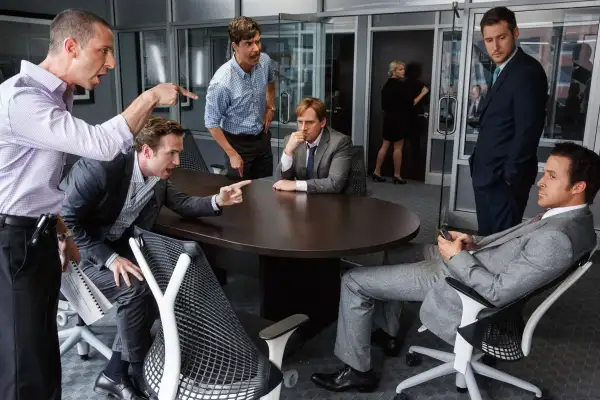'The Big Short' Explained
Money is not a client of any investment adviser featured on this page. The information provided on this page is for educational purposes only and is not intended as investment advice. Money does not offer advisory services.

So What Exactly Happened in The Big Short?
The Big Short tells the story of the financial crisis through a group of outsiders and misfits who predicted the housing collapse and became fabulously rich. If you grasp that, then you’ll be able to enjoy the 5-time Oscar nominated film.
Of course, the details are much more complicated and comprise an avalanche of purposefully obscure financial acronyms, a glut of global savings looking for higher yield and overconfident and reckless financiers.
So here we go…Banks started dispensing mortgages like candy in the middle of the last decade. Meanwhile, Wall Street started packaging all of those mortgages into bonds and selling them to investors looking for higher returns on what looked like safe investments: A stream of money coming from homeowners making their monthly mortgage payment.
From here Wall Street went wild, creating all kinds of securities essentially built on the mortgages that banks were handing out like candy.
Everything was peachy-keen as long as housing prices rose and homeowners made their payments on time. But in their stampede to hand out mortgages that could be fed into the Wall Street machine, banks didn’t try too hard to check whether the home buyers they were lending money to had any realistic chance of paying them back. And when home prices started falling and people stopped making payments on mortgages they couldn’t afford, it caused a chain reaction that nearly broke the financial system.
Our gang of misfits saw this impending disaster looming and found a way to profit off of it. Basically, they bought insurance against the possibility that the housing market might collapse. Which means they paid a monthly premium while the party rolled on, but got a huge payout when it all went boom.
Which, of course, it did, to terrible effect.
